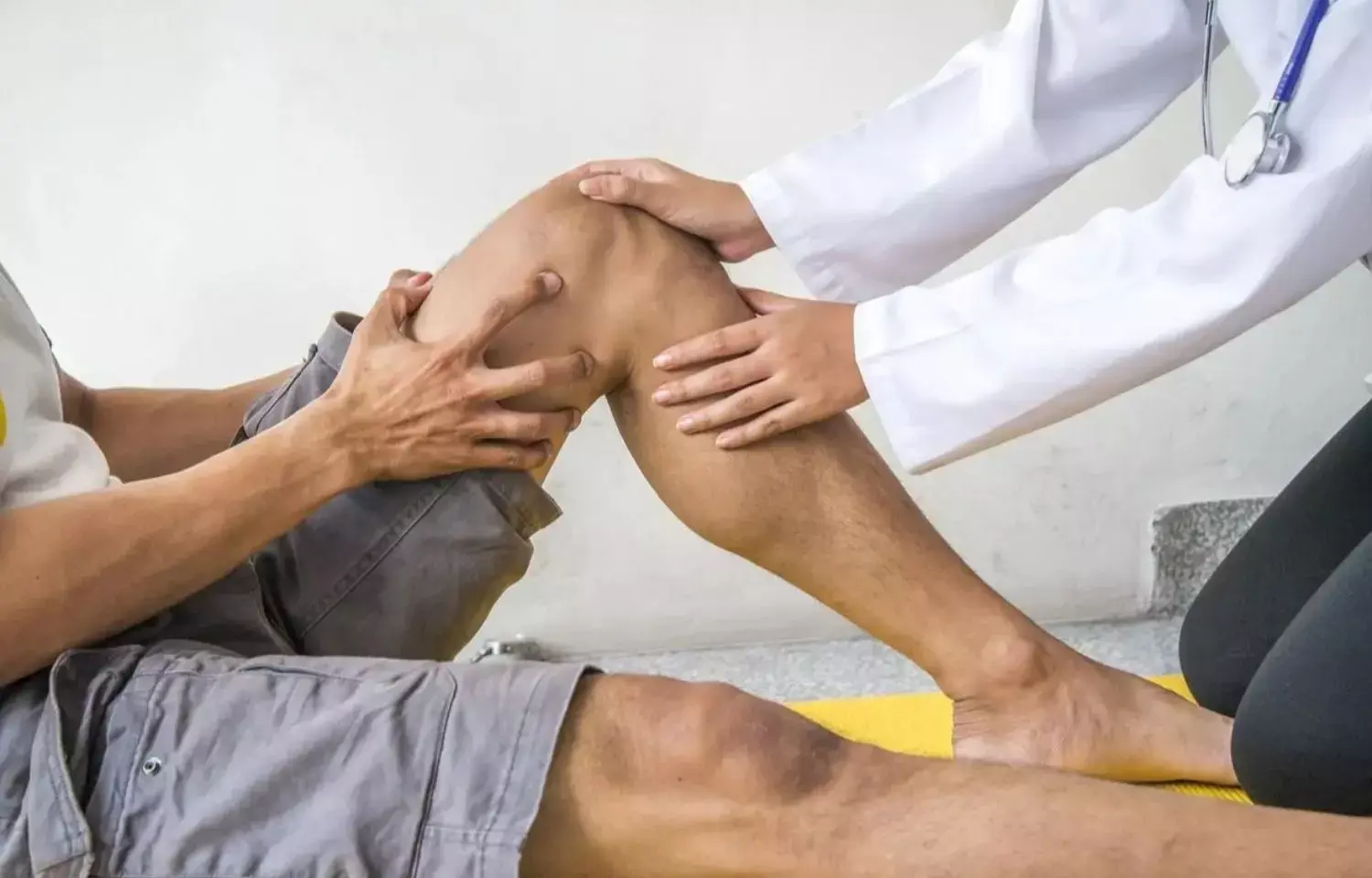- Home
- Medical news & Guidelines
- Anesthesiology
- Cardiology and CTVS
- Critical Care
- Dentistry
- Dermatology
- Diabetes and Endocrinology
- ENT
- Gastroenterology
- Medicine
- Nephrology
- Neurology
- Obstretics-Gynaecology
- Oncology
- Ophthalmology
- Orthopaedics
- Pediatrics-Neonatology
- Psychiatry
- Pulmonology
- Radiology
- Surgery
- Urology
- Laboratory Medicine
- Diet
- Nursing
- Paramedical
- Physiotherapy
- Health news
- Fact Check
- Bone Health Fact Check
- Brain Health Fact Check
- Cancer Related Fact Check
- Child Care Fact Check
- Dental and oral health fact check
- Diabetes and metabolic health fact check
- Diet and Nutrition Fact Check
- Eye and ENT Care Fact Check
- Fitness fact check
- Gut health fact check
- Heart health fact check
- Kidney health fact check
- Medical education fact check
- Men's health fact check
- Respiratory fact check
- Skin and hair care fact check
- Vaccine and Immunization fact check
- Women's health fact check
- AYUSH
- State News
- Andaman and Nicobar Islands
- Andhra Pradesh
- Arunachal Pradesh
- Assam
- Bihar
- Chandigarh
- Chattisgarh
- Dadra and Nagar Haveli
- Daman and Diu
- Delhi
- Goa
- Gujarat
- Haryana
- Himachal Pradesh
- Jammu & Kashmir
- Jharkhand
- Karnataka
- Kerala
- Ladakh
- Lakshadweep
- Madhya Pradesh
- Maharashtra
- Manipur
- Meghalaya
- Mizoram
- Nagaland
- Odisha
- Puducherry
- Punjab
- Rajasthan
- Sikkim
- Tamil Nadu
- Telangana
- Tripura
- Uttar Pradesh
- Uttrakhand
- West Bengal
- Medical Education
- Industry
Add on Bupivacaine fails to reduce pain after knee replacement surgery: JAMA

UK: A new study published in the Journal of American Medical Association found that in patients undergoing knee replacement surgery, there was no difference in postoperative recovery or discomfort when periarticular liposomal bupivacaine was used vs bupivacaine hydrochloride alone, according to this research.
More than half of people who have knee replacement surgery experience significant initial postoperative pain. As a result, Thomas W. Hamilton and colleagues undertook this research to assess the efficacy and cost-effectiveness of periarticular liposomal bupivacaine for knee replacement recovery and pain management.
This multicenter, pragmatic, patient-blind, randomized clinical superiority study included 533 people from 11 different institutions in England's National Health Service. between March 29, 2018, and February 29, 2020 adults receiving primary unilateral knee replacement for symptomatic end-stage osteoarthritis were enrolled, and followed up for one year after surgery. The follow-up was finished on March 1, 2021. In addition to the main intention-to-treat analysis, each coprimary outcome was subjected to a per-protocol analysis. The patients received a periarticular injection of 266 mg of liposomal bupivacaine admixed with 100 mg of bupivacaine hydrochloride vs 100 mg of bupivacaine hydrochloride alone (control) at the time of surgery.
The key findings of this study were as follows:
The mean (SD) age of the 533 participants in the study was 69.0 (9.7) years; 287 patients (53.8 percent) were women, and 246 were males (46.2% ).
The baseline characteristics of the study groups were balanced.
There was no change in QoR-40 score at 72 hours or pain VAS score AUC from 6 to 72 hours between the liposomal bupivacaine and control groups.
Analyses of pain VAS and QoR-40 ratings revealed just one statistically significant difference: the liposomal bupivacaine arm had lower pain scores the evening following surgery.
There was no difference in cumulative opioid intake and functional results.
When compared to the control therapy, liposomal bupivacaine was not cost-effective.
There was no difference in adverse or severe adverse events between the control groups and liposomal bupivacaine.
In conclusion, for patients who had undergone knee replacement surgery, periarticular liposomal bupivacaine combined with bupivacaine hydrochloride did not enhance postoperative recovery or pain when compared to bupivacaine hydrochloride alone. Furthermore, the intervention was determined to be ineffective in terms of cost-effectiveness.
Reference:
Hamilton TW, Knight R, Stokes JR, et al. Efficacy of Liposomal Bupivacaine and Bupivacaine Hydrochloride vs Bupivacaine Hydrochloride Alone as a Periarticular Anesthetic for Patients Undergoing Knee Replacement: A Randomized Clinical Trial. JAMA Surg. Published online April 06, 2022. doi:10.1001/jamasurg.2022.0713
Medical Dialogues consists of a team of passionate medical/scientific writers, led by doctors and healthcare researchers. Our team efforts to bring you updated and timely news about the important happenings of the medical and healthcare sector. Our editorial team can be reached at editorial@medicaldialogues.in.
Dr Kamal Kant Kohli-MBBS, DTCD- a chest specialist with more than 30 years of practice and a flair for writing clinical articles, Dr Kamal Kant Kohli joined Medical Dialogues as a Chief Editor of Medical News. Besides writing articles, as an editor, he proofreads and verifies all the medical content published on Medical Dialogues including those coming from journals, studies,medical conferences,guidelines etc. Email: drkohli@medicaldialogues.in. Contact no. 011-43720751


